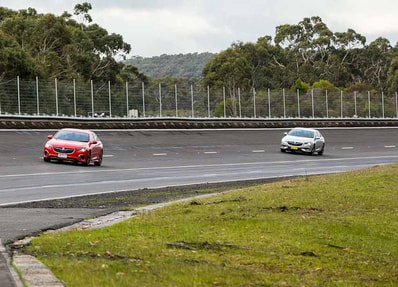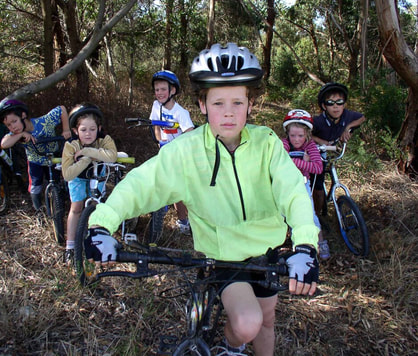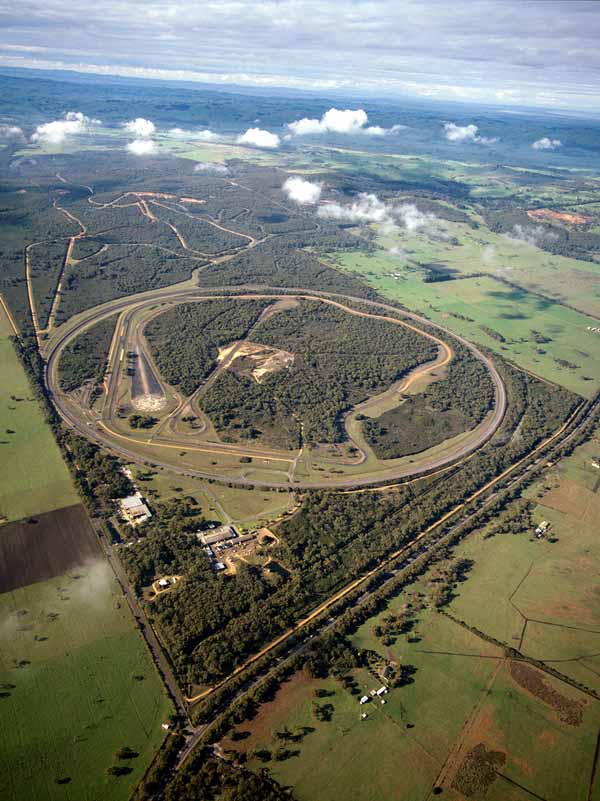 The Holden Proving Ground includes 44 kilometres of roads and tracks, but much of the site is woodland.
The Holden Proving Ground includes 44 kilometres of roads and tracks, but much of the site is woodland. IT’S EASY to get lost in the negativity right now, to believe there won’t be any light at the end of the tunnel. However, for a moment, cast your mind forward a couple of years – to a time when the pandemic is over.
You arrive at the old Lang Lang Proving Grounds on a beautiful, sunny Saturday for the opening of the newly redeveloped site.
The Premier stands on a podium, along with Bass Coast councillors, a representative from the Bunurong Land Council, the Minister for Tourism, the Minister for the Environment and teachers and staff from universities, colleges and schools, all waiting to give their two cents’ worth on the opportunities this new public facility will provide. Before them, an excited crowd waits to hear the details.
The Bunurong Land Council and the Royal Botanic Gardens Cranbourne receive their due for the permaculture gardens and the newly planted orchard, which will stock the café on site with fresh, organic produce.
The Minister for Tourism talks about the unlimited potential in the area, and you hear mumblings of agreement throughout the crowd as ideas start to form. What is the potential for using the existing proving ground for driver training? The L2P program? Could we use the skid pad? How about a Tread Lightly-type off-road training course?
Item two on the agenda: Is an interpretive museum in an existing but redeveloped building the best path forward? We must remember to tell the story of the people who worked here, not just the engineering and racing and driving that was done here.
The excitement builds as the Minister for the Environment begins talking about CERES Western Port – a new branch off the original community environment park in Brunswick. The partnership with the Bunurong Land Council and the Royal Botanic Gardens at Cranbourne has already borne fruit, if you’ll pardon the pun, and the Bush Tucker Café is rapidly developing a reputation for its outstanding food and great service. A committed manager employed by CERES, a creative indigenous chef and staffing by the students from Chisolm TAFE hospitality and catering courses gives the café a unique and relaxed vibe enhanced by the tranquil bush all around it.
 Cross-country trails could make the HPV site a mecca for mountain bikers young and old.
Cross-country trails could make the HPV site a mecca for mountain bikers young and old. A group in an odd mix of lycra and baggies, speaking a mix of European languages, make last minute adjustments to their mountain bikes and backpacks before heading out to explore the cross-country trail. After a good few hours to ride the trails they’ll stop for lunch at the cafe before riding to San Remo. Tomorrow they’ll ride the rail trail to Wonthaggi, lunch and then ride down to Cape Paterson and along the coast to Inverloch.
Nearing the trailhead, they pause to examine the human powered vehicles that have just been unloaded by staff and students from Wonthaggi Secondary College. A university team is preparing for a day of high-speed testing of high-tech carbon fibre racing bicycles.
Nearby a group of local primary school students, teachers and parents are preparing for their day. Their Bunurong guide explains to the children that they will break up into teams to explore, catalogue and identify every species of plant or animal in the small area they will walk to shortly. She emphasises to the children that their work will contribute to an audit of the entire site, a process which will take several years.
A robotic wheeled vehicle is silently maneuvered around the group by its operator, an engineer formerly employed by Holden but now working for a start-up developing drones for search and rescue and sustainable farming.
A couple of artists are examining the site map, deep in discussion with some bushwalkers about the best spots to set up their easels. A view would be nice but what they really want is the light filtering through the trees. Can the walkers suggest any particular spots?
The wildlife rescue and sanctuary is opening its doors, educating the assembled people on rare and endangered Australian native wildlife.
You set off for a short bushwalk, before coming back for a wattle-seed and vanilla latte from the café. With a window seat, you can watch the native birds fly through the trees and hear the delighted conversations of the community as they pass by. You reflect on the tragic events that led to this wonderful environmental and community asset.
Holden’s demise was widely mourned but their departure from Australia made the land available. The tragic pandemic of 2020 had two impacts: the collapse of the international tourist industry at the same time as GM discovered car companies had no money to invest in a development facility in remote south-eastern Australia.
And so the Victorian Government was able to acquire the land at a reasonable price.
The Rural and Regional Economic Stimulus Fund, established by the Commonwealth as part of the National Pandemic Response Strategy, found that the project had broad economic, environmental and community benefits and funded the business case and part of the acquisition. The Regional Tourism Support Fund, established by the Victorian Government as part of its own response to COVID-19, funded the rest of the acquisition and the cost of establishing appropriate management and governance in conjunction with all the other stakeholders.
Bass Coast Council provided the impetus, drove local support, liaised with other levels of government and their agencies and agreed to pay a share of management costs as per the stakeholder agreement.
A complex process, certainly, but then this is a complex place, significant first for its environmental value, then for its role in our heritage as a crucial part of our industrial history, then as a locus of sustainable community recreation and a destination for local, national and international bicycle and bushwalking tourism, then as a model of indigenous self-determination and economic development, then as a center for community environmental education, a venue for hospitality and catering training and finally an ongoing role as a proving ground available for use by the fledgling Australian e-vehicle industry.
Out of tragedies this great thing came.
Maybe this sounds like a pipedream. But don’t we need one right now?
Mikhaela Barlow is part of a local working group lobbying for the Holden Proving Ground to become a community asset. Contact [email protected] if you would like to know more and be added to the group’s mailing list.
